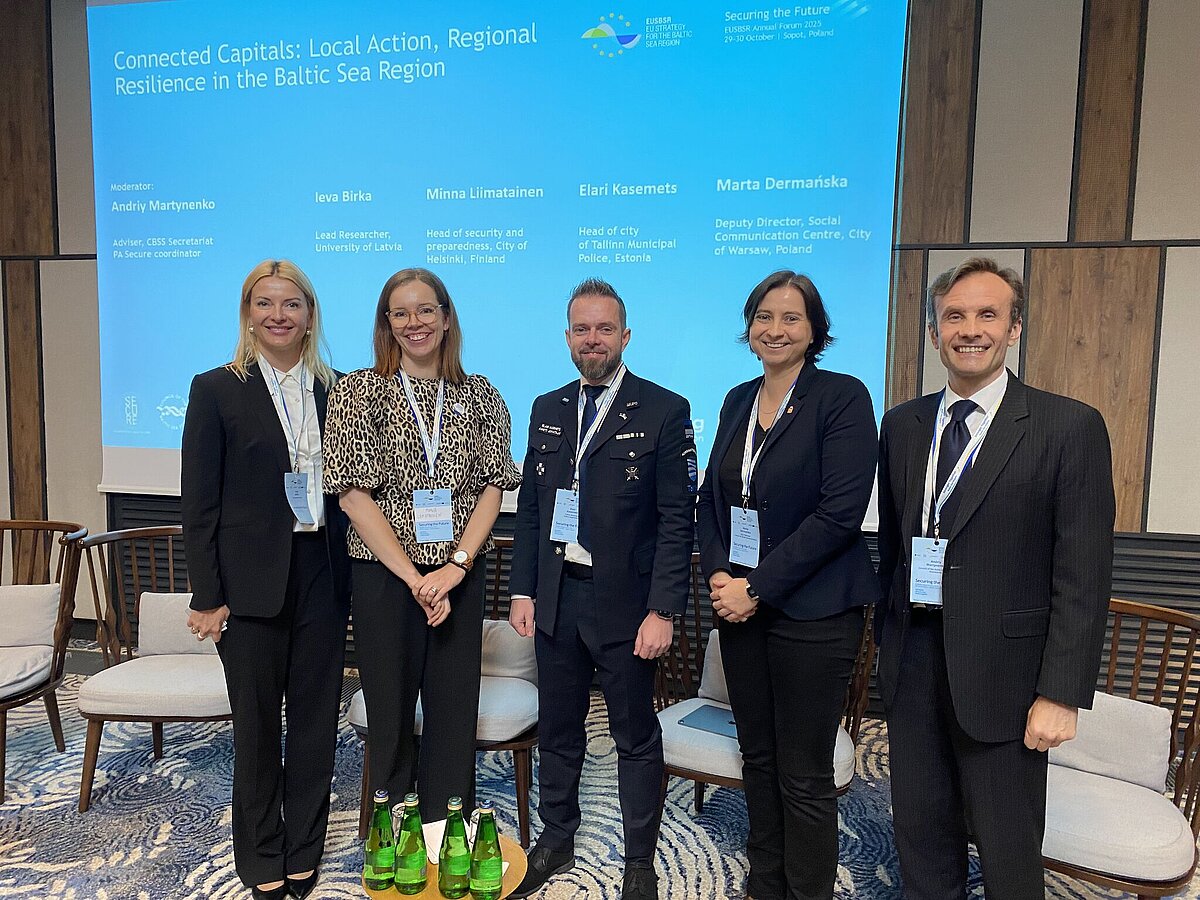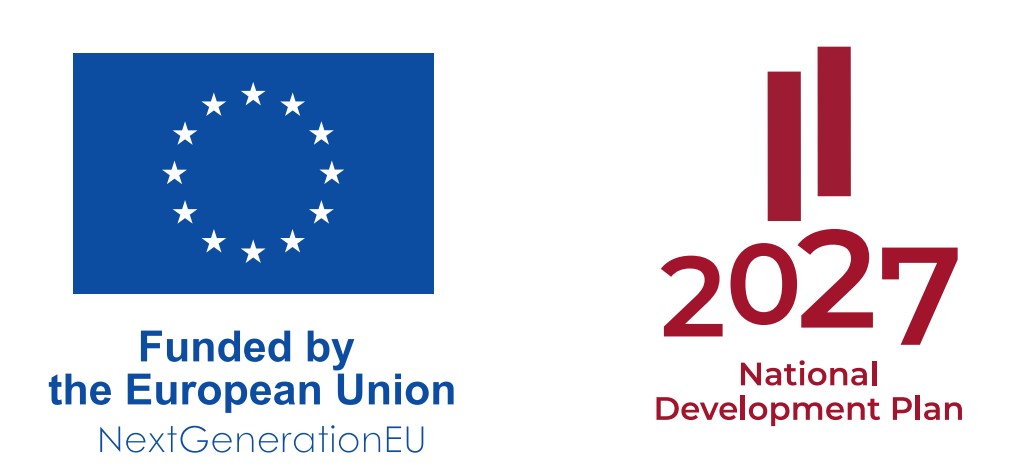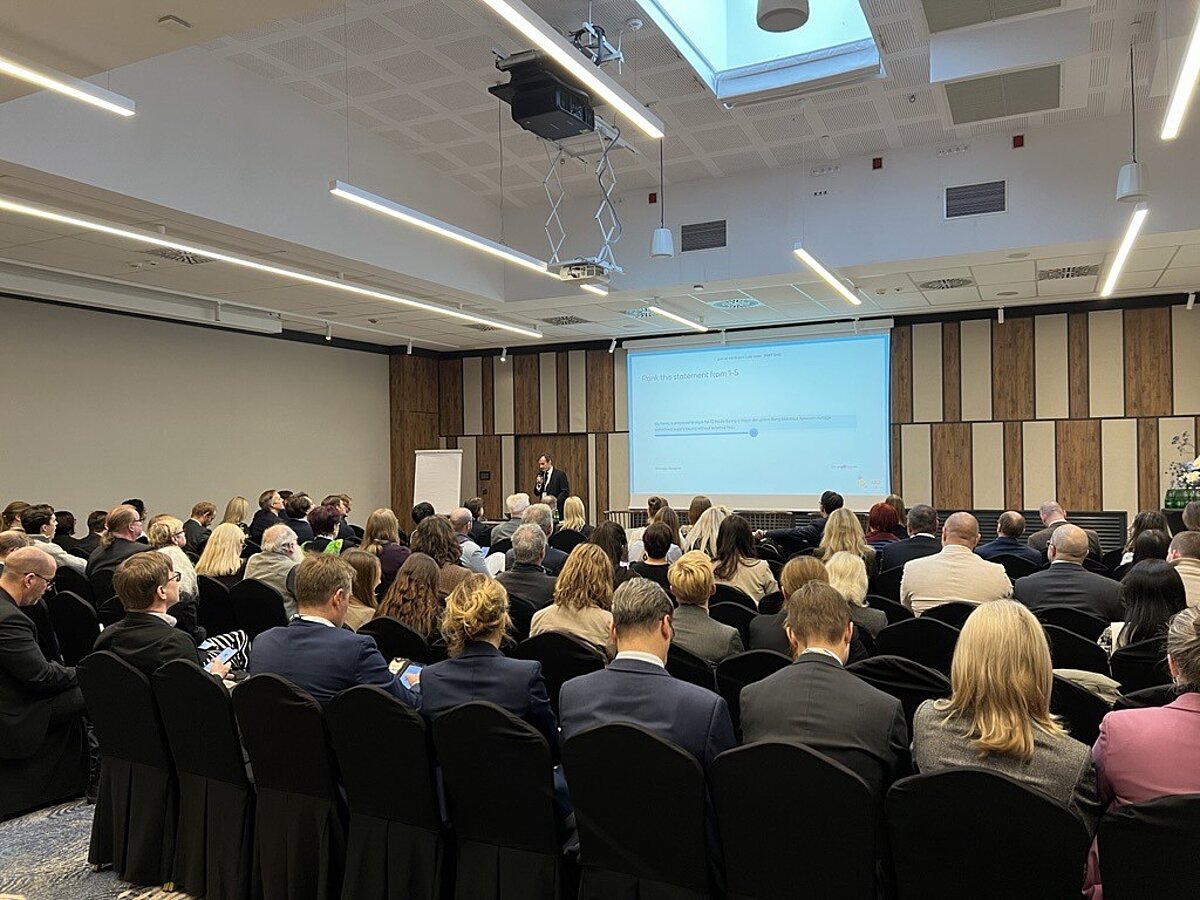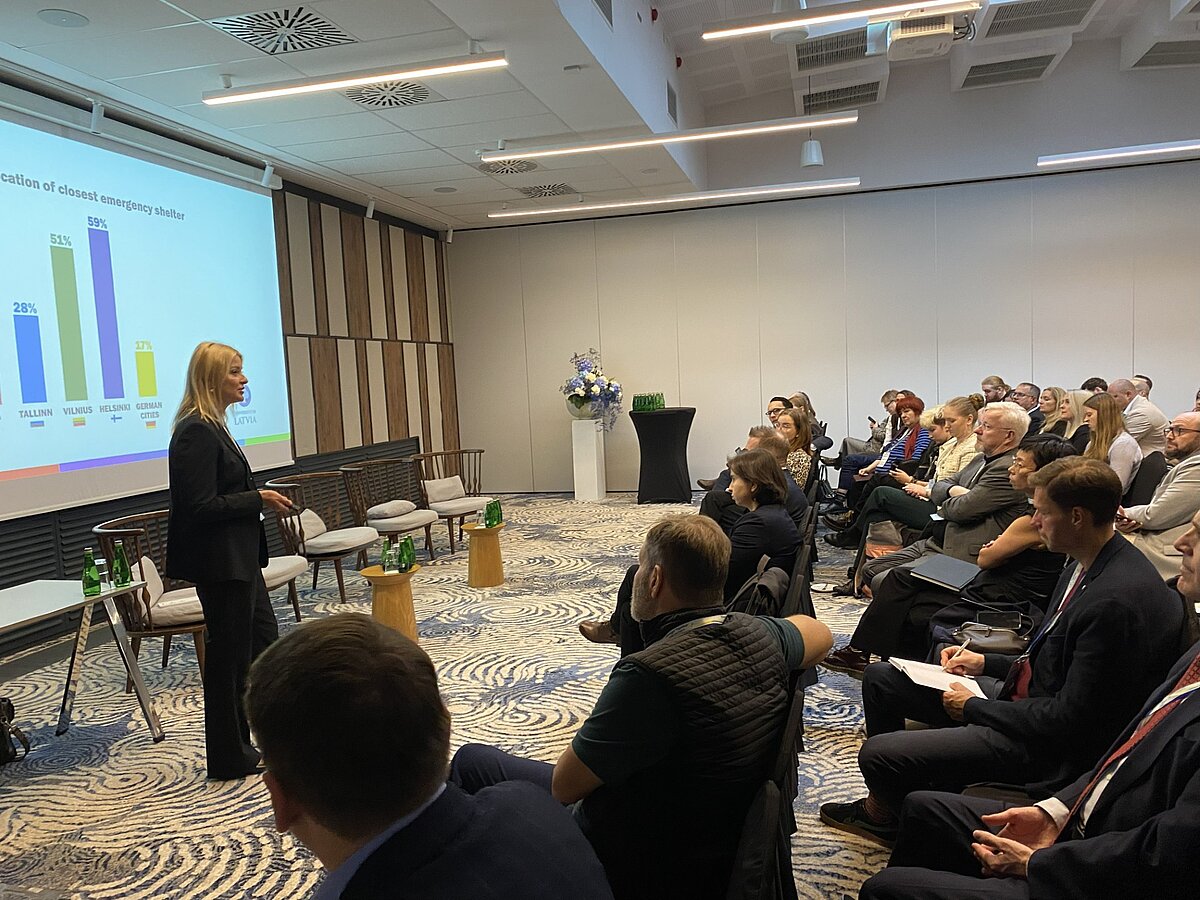

The annual Baltic Sea Region Strategy (EUSBSR 2025) Forum took place in late October in Sopot, Poland, under the theme “Safe and Secure Future: Stronger Together – Building Stability in Times of Uncertainty.” University of Latvia Faculty of Economics and Social Sciences lead researcher Ieva Birka participated in the panel discussion “Connected Capitals: Local Action, Regional Resilience”, where she presented the latest findings from the study “Urban Preparedness for Emerging Risks in the Baltic Sea Region.” Initial funding for the development of the survey methodology in 2023 was provided by the Council of the Baltic Sea States (CBSS). The discussion focused on protecting essential societal functions and promoting public engagement in strengthening resilience across the capitals of the Baltic Sea region.
“Our results reveal a striking paradox – residents generally feel safe in their daily lives and are aware of the risks their city may face, yet only a small proportion are actually prepared to manage a crisis independently within 72 hours,” explained UL FESS lead researcher Ieva Birka. “This gap between awareness and action highlights an urgent need for more effective crisis communication, practical training, and preparedness at the household level – particularly regarding such a vital aspect as access to water.” Researchers identified this alarming gap between perceived safety and actual urban preparedness for crisis situations based on survey data from more than 5,000 residents in Helsinki, Tallinn, Riga, Vilnius, and several major German cities.
The FESS lead researcher emphasized that residents wish to receive more detailed and practical information from national and municipal institutions, as well as locally organized awareness-raising activities and training. Ieva Birka also highlighted the need to improve public communication, enhance infrastructure, and ensure that every household knows how to act in an emergency situation.
Other panel participants shared their experiences of initiatives implemented in their cities to raise public awareness and improve information exchange among the region’s capitals. A representative from the City of Helsinki praised the study conducted by FESS and its results, noting that in recent years they have been used as a basis for budget planning in the field of crisis communication.
The EUSBSR 2025 Forum underscored the growing recognition that urban preparedness and an informed population are crucial factors for the long-term stability and security of the Baltic Sea region. It also highlighted the significant contribution of University of Latvia researchers to shaping policy initiatives in the Baltic Sea region and the European Union.
Project title: Urban Preparedness for Emerging Risks in the Baltic Sea Region
Project Contract Number: No. 5.2.1.1.i.0/2/24/I/CFLA/007
Project Grant Agreement Number: LU-BA-PA-2024/1-0051

 CONFERENCE
CONFERENCE
